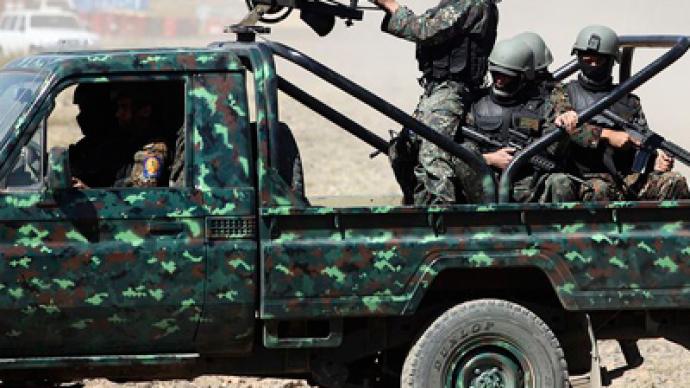US secret aims in Yemen secret no more

With the US already fighting in two wars, Yemen has been revealed as another possible front opening up, and the American media is now stoking fears that the Arab country is a hotbed of terrorism.
As confirmed by a recent WikiLeaks dispatch of classified diplomatic cables, US special operations forces are carrying out strikes against suspected terrorists in Yemen, and the Yemeni government is taking the credit.In exchange for Yemen’s co-operation, the US heavily finances the country’s fragile government.But US plans in Yemen go further than strikes. The military are discussing long-term bases and asking for more than a billion dollars to fight Al-Qaeda there.“If Osama Bin Laden had a dream for him and a nightmare for us – it was to involve us in inconclusive wars in distant lands that would cost us a fortune,” says author Tom Engelhardt. “There’s a kind of unintelligence national security bureaucracy that’s fed in this country on fear and Americans are irrationally scared.”When the “parcel bomb” hysteria broke out in October, the US 24-hour-news machine did not fall short of feeding Americans’ worst fears saying that “A second suspicious package from Yemen was found in a FedEx facility”, “It’s an ideal country for an organization like Al-Qaeda” and “US authorities believe Al-Qaeda is behind this shipment”.The packages from Yemen gave rise to a lot of confusion as to whether they were really parcel bombs. But one thing was beyond doubt – the fear trigger has been pulled. Yemen was in the news as a terrorist hub.In a matter of days the US officially deployed predator drones in Yemen and started talking about bases there.“They deliberately over-blow all of these incidents, because there's a huge constituency, a huge business – national security business, national defense business – which is paid for by the US taxpayer,” says Philip Geraldi, former counter-terrorism specialist and military intelligence officer. “It's a way of capturing political support. It's a way of doing lots of different things. What it's not doing: it is not defeating terrorism.”The most generous estimates suggest there are perhaps “several hundred” Al-Qaeda members in the poverty-stricken, strife-torn deserts of Yemen. US Special Forces have been chasing them for years, causing dozens of civilian deaths.There is fierce infighting going on in Yemen. Some experts say the heavy US footprint there does not make the country any safer. And one question often skips the fear-charged official rhetoric: are a bunch of Al-Qaeda guys hiding in a country – and they are very hard to track – reason enough basically to invade it, and most probably destabilize the situation there even more?''What the US is doing in Yemen is really inflaming the prominence of Al-Qaeda on the Arabian Peninsula,” says Jeremy Scahill, investigative journalist and author. “This is a group that probably would have been very little street value in the Arab street or the Muslim street if the US wasn't propping up Anwar al-Awlaki as the second coming of Osama Bin Laden. I think it goes to show how little we’ve learnt from the boogeyman days of Bush and Cheney and how our own policies endanger us more in many cases than Al-Qaeda’s policies.”On the surface, American leaders are motivated by the fear of one day receiving a parcel bomb, but some say the zeal has other layers of motivation."You’re not going to make the technology of a letter bomb go away by attacking what you think is Al-Qaeda in Yemen,” Philip Geraldi says. “You just make it move to another place. The US government is very much into a marketing campaign to make these things look like that their government is being effective.”In the light of modern US wars and their coverage in the media, it appears that the objective pros and cons of waging a military campaign can be muted, whenever fear comes into the picture – and fear can justify almost anything.













